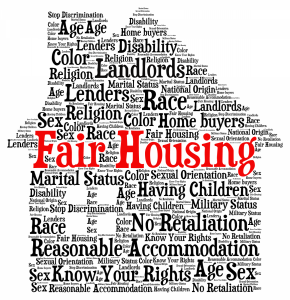Hoarding: A Disability for the Afflicted, a Nuisance for Neighbors and a Problem for Condo Boards
By Mark Einhorn
Of all the problems condo associations confront – and there are many – hoarding is among the most difficult. Hoarding is both an illness for the hoarder and a nuisance (or worse) for other residents. Handling hoarding situations require boards and managers to balance two sides of a difficult equation: Sensitivity for the hoarder on one side and their obligation to protect the health, safety and well-being of everyone in the community on the other. Hoarding is recognized as an emotional disorder; experts estimate that between 2 percent and 6 percent of the population suffers from it. Any community with more than 20 units almost certainly has a hoarder (or will at some point), although often the problem may grow invisibly, hidden behind closed doors for years before it is identified -sometimes during a routine inspection of the unit for an unrelated issue; often because of complaints from owners about pests, smells emanating from the unit or clutter spilling into common areas. By the time boards become aware of the issue it is usually affecting other residents, which is the point at which action is required. What should you do?Better to start with what you should not do. Don’t write angry letters, don’t issue ‘clean up or else’ ultimatums (at least, don’t start there) and don’t necessarily levy hefty fines. There are two problems with fines. First, assessing fines in hoarding situations typically will not work. Hoarders don’t willfully ignore orders to de-clutter; they don’t clean up because they can’t – or more accurately, they think they can’t. Remember, hoarding is a medical disorder; it’s a disability. And that’s the second problem with fines – punishing someone for having a disability is likely a futile effort; hoarding should be handled differently than general misconduct cases. You wouldn’t fine a blind resident for failing to read and respond to a written violation notice, and you shouldn’t fine a hoarder who ignores an initial clean-up order for the same reason. All your efforts should be aimed at solving the problem, not punishing the person causing it.Hoarding may ultimately require an enforcement action. But unless you’re dealing with an imminent threat – explosive materials in the unit or a water leak that is damaging common areas or other units – that shouldn’t be the first step. Try talking to the owner first and make this initial discussion as non-threatening and non-judgmental as possible. You might say, for example: “I noticed that it is hard to open your front door and that could be a hazard in an emergency. How can we help you deal with this?” You might offer to find a service that can help with the clean-up. The association might even offer to pay for a dumpster. Any action plan you devise should specify a timetable for the cleanup and require periodic inspections for some period after the unit has been restored.You want the owner to buy into a clean-up plan and participate in it. The owner’s participation is essential. Barging into someone’s unit and unilaterally throwing out his/her stuff is likely to create more problems than it would solve. Sometimes owners welcome the assistance, but admittedly that is more the exception than the rule. If the owner resists, which is more likely than not, you should move up the escalation ladder, starting with the least heavy-handed and least intrusive measures:
Hoarding is recognized as an emotional disorder; experts estimate that between 2 percent and 6 percent of the population suffers from it. Any community with more than 20 units almost certainly has a hoarder (or will at some point), although often the problem may grow invisibly, hidden behind closed doors for years before it is identified -sometimes during a routine inspection of the unit for an unrelated issue; often because of complaints from owners about pests, smells emanating from the unit or clutter spilling into common areas. By the time boards become aware of the issue it is usually affecting other residents, which is the point at which action is required. What should you do?Better to start with what you should not do. Don’t write angry letters, don’t issue ‘clean up or else’ ultimatums (at least, don’t start there) and don’t necessarily levy hefty fines. There are two problems with fines. First, assessing fines in hoarding situations typically will not work. Hoarders don’t willfully ignore orders to de-clutter; they don’t clean up because they can’t – or more accurately, they think they can’t. Remember, hoarding is a medical disorder; it’s a disability. And that’s the second problem with fines – punishing someone for having a disability is likely a futile effort; hoarding should be handled differently than general misconduct cases. You wouldn’t fine a blind resident for failing to read and respond to a written violation notice, and you shouldn’t fine a hoarder who ignores an initial clean-up order for the same reason. All your efforts should be aimed at solving the problem, not punishing the person causing it.Hoarding may ultimately require an enforcement action. But unless you’re dealing with an imminent threat – explosive materials in the unit or a water leak that is damaging common areas or other units – that shouldn’t be the first step. Try talking to the owner first and make this initial discussion as non-threatening and non-judgmental as possible. You might say, for example: “I noticed that it is hard to open your front door and that could be a hazard in an emergency. How can we help you deal with this?” You might offer to find a service that can help with the clean-up. The association might even offer to pay for a dumpster. Any action plan you devise should specify a timetable for the cleanup and require periodic inspections for some period after the unit has been restored.You want the owner to buy into a clean-up plan and participate in it. The owner’s participation is essential. Barging into someone’s unit and unilaterally throwing out his/her stuff is likely to create more problems than it would solve. Sometimes owners welcome the assistance, but admittedly that is more the exception than the rule. If the owner resists, which is more likely than not, you should move up the escalation ladder, starting with the least heavy-handed and least intrusive measures:
Moving Up the Escalation Ladder
- Identify family members or close friends who may be willing to help.
- Contact local social service agencies: Elder Affairs if the resident is a senior; Veterans Affairs if you’re dealing with a veteran.
- Get a hoarding expert involved. The North Shore Center for Hoarding and Cluttering may be able to provide advice and assistance. The Hoarding Project; MassHousing; and the International OCD Foundation are also possible sources of information and advice.
 Contact local health and safety officials – the Department of Health, the Fire Department or the Building Department. These agencies have the authority to issue orders compelling the clean-up and restoration of the unit. By stepping in, they replace the board as the ‘bad guy’ in this process, and there is certainly something to be said for that.
Contact local health and safety officials – the Department of Health, the Fire Department or the Building Department. These agencies have the authority to issue orders compelling the clean-up and restoration of the unit. By stepping in, they replace the board as the ‘bad guy’ in this process, and there is certainly something to be said for that.  They can also serve as third party witnesses if court action is required later on. Board members and managers sometimes hesitate to contact these agencies because they fear inspectors will cite the association rather than the owner for any violations found in the unit. While I have encountered building and health inspectors who didn’t understand that a condo association board is not the same as an apartment landlord, once I’ve explained the condominium structure to them, if they have issued a citation to the association, they have usually been willing to change the order to cite the unit owner. Most of the time, they get it right, so involving local agencies is usually the right call.
They can also serve as third party witnesses if court action is required later on. Board members and managers sometimes hesitate to contact these agencies because they fear inspectors will cite the association rather than the owner for any violations found in the unit. While I have encountered building and health inspectors who didn’t understand that a condo association board is not the same as an apartment landlord, once I’ve explained the condominium structure to them, if they have issued a citation to the association, they have usually been willing to change the order to cite the unit owner. Most of the time, they get it right, so involving local agencies is usually the right call.- Go to court. If the owner is unresponsive or resistant and other options fail, legal action may be necessary. Most governing documents give boards the authority to enter an owner’s unit without permission, if necessary, to deal with an emergency situation. But unless you are dealing with an imminent threat (fire or flooding, for example), it is better to get a court order authorizing the entry. You may also need a court order directing the owner to clean up the unit within a specified period of time and authorizing the board to undertake the clean-up, at the owner’s expense, if the owner fails to comply. If the board takes over the cleanup, it should document with photos conditions in the unit before the work begins, document the cleanup progress, and keep records (to the extent possible) of the items that are discarded and stored.
Fair Housing Accommodations?
Because hoarding is a disability, residents who have this condition could request an “accommodation” for their condition under the Fair Housing Act. I’m not aware of any hoarding sufferers who have followed this route, and I’m not sure what they would request – access to unused space for storage, perhaps, or the ability to install a storage unit in a common area? Nevertheless, if confronted with a hoarding accommodation request, boards should treat it as they would treat any request for a Fair Housing accommodation, following the interactive process the law requires: Ask the owner to provide written documentation of the disability from a medical professional; determine whether the requested accommodation can be granted without imposing an undue burden (financial, administrative or structural ) on the association; if not, try to propose an alternative that would address the owner’s needs. You must be able to demonstrate an effort to find an accommodation, even if you determine that there isn’t a viable one, in order to defend a Fair Housing discrimination claim.It is an unfortunate reality that associations may face liability risks on both sides – from hoarders who resent and resist what they may view as an invasion of their privacy and an improper intrusion into their personal space; and from other residents, if the board fails to address their legitimate health, safety and nuisance concerns. Hoarders may sue the board for removing or destroying their treasured possessions; owners who are harmed or whose property is damaged may sue the board for failing to address a dangerous situation of which board members were aware. This is another ‘sued-if-you-do-and if-you-don’t’ situation that condo boards confront all too often.Hoarding is a complicated, challenging, and frustrating problem to which there are no easy solutions. Failure to act is not an option, but how you act is important. Board members and managers should address hoarding as an illness first and a violation of the community’s rules second. Focusing on the hoarding owner’s need for help as well as on the board’s responsibility to enforce the community’s rules is more likely to produce a long-term solution that works for everyone.
Nevertheless, if confronted with a hoarding accommodation request, boards should treat it as they would treat any request for a Fair Housing accommodation, following the interactive process the law requires: Ask the owner to provide written documentation of the disability from a medical professional; determine whether the requested accommodation can be granted without imposing an undue burden (financial, administrative or structural ) on the association; if not, try to propose an alternative that would address the owner’s needs. You must be able to demonstrate an effort to find an accommodation, even if you determine that there isn’t a viable one, in order to defend a Fair Housing discrimination claim.It is an unfortunate reality that associations may face liability risks on both sides – from hoarders who resent and resist what they may view as an invasion of their privacy and an improper intrusion into their personal space; and from other residents, if the board fails to address their legitimate health, safety and nuisance concerns. Hoarders may sue the board for removing or destroying their treasured possessions; owners who are harmed or whose property is damaged may sue the board for failing to address a dangerous situation of which board members were aware. This is another ‘sued-if-you-do-and if-you-don’t’ situation that condo boards confront all too often.Hoarding is a complicated, challenging, and frustrating problem to which there are no easy solutions. Failure to act is not an option, but how you act is important. Board members and managers should address hoarding as an illness first and a violation of the community’s rules second. Focusing on the hoarding owner’s need for help as well as on the board’s responsibility to enforce the community’s rules is more likely to produce a long-term solution that works for everyone.
